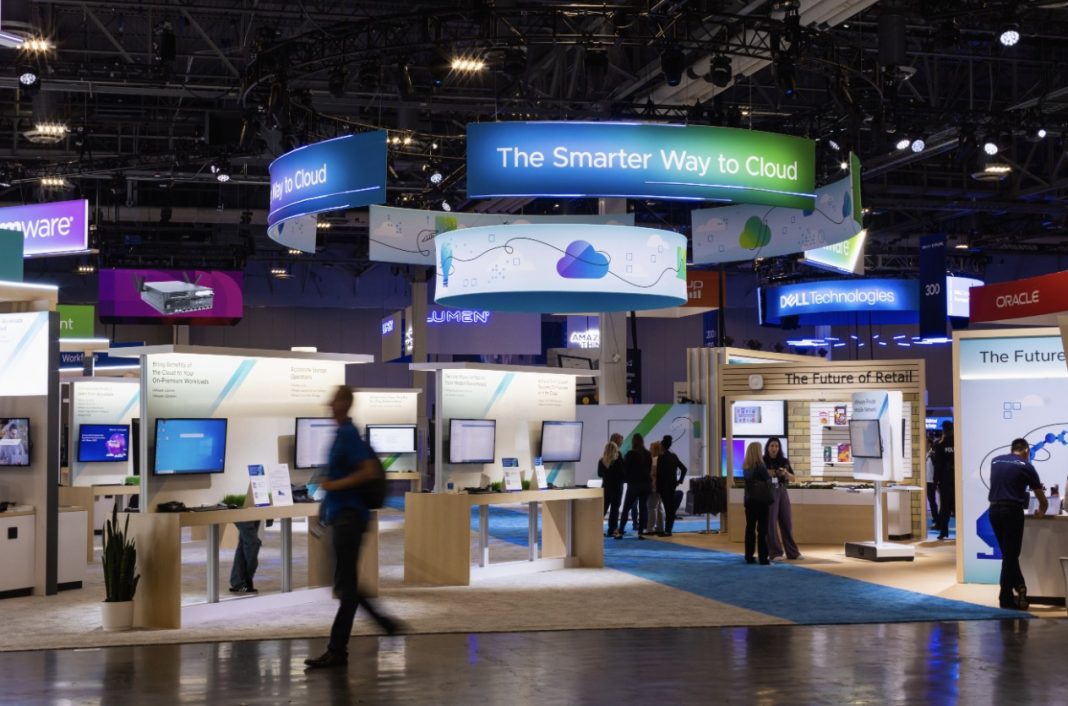At its annual launch event last August, virtualization software maker VMware highlighted the technologies and strategy it believes will enable businesses to get ahead: Generative artificial intelligence (AI) and a multi-cloud approach.
During the virtual briefing for the Asia Pacific region held on Aug. 24, the company explained how their new innovations can help Asia Pacific corporations take full advantage of these technologies.
First, VMware’s main announcement centered around empowering businesses to develop their own Generative AI applications. This type of AI specializes in producing all types of new and original content, including text, code, images and audio.
While Generative AI has the potential to automate processes and facilitate data analysis, Asia Pacific companies are wary of developing their own AI apps.
Their caution is due to regulatory, intellectual property, and privacy concerns that arise from the necessary process of feeding their customers’ information or their own data into the large language models (LLMs) that power Generative AI.
It is this particular problem that VMware hopes to address with its new VMware Private AI Foundation.
Created in partnership with NVIDIA, the VMware Private AI Foundation allows customers to run their AI app workloads with their choice of LLMs, but also brings the LLMs closer to where the company’s information is stored rather than sending out the data. Thus, it protects company’s data security, while still allowing them to leverage AI for their businesses.
Guru Venkatachalam, VMware chief technology officer for Asia Pacific and Japan, stated: “With Generative AI, we are seeing the democratization of AI… so we genuinely believe that this technology is going to create the next wave of [applications] and almost everybody will have AI-based applications over the next few years.”
“With the VMware Private AI Foundation, we are helping customers run their workload, but also take care of data privacy and other related challenges,” Venkatachalam said.
Besides enabling companies to securely run their Generative AI app workloads, VMware’s second focus during this year’s launch event was their score of upgrades to products that enable businesses’ multi-cloud strategies.
Compared to using only one cloud provider, utilizing services from more than one cloud vendor or adopting a multi-cloud approach gives Asia Pacific companies more flexibility, allows them to provide lower latency for their customers, and reduces their risk of service outages.
VMware has advocated for businesses to adopt a multi-cloud approach for years, so their updates to their multi-cloud offerings were a key part of their event.
For instance, they announced updates to the VMware Cloud Foundation, their flagship multi-cloud platform that provides full-stack infrastructure to help businesses modernize their data centers and deploy their applications.
The various improvements encompassed the platform’s storage, network virtualization and security, as well as ransomware protection and recovery capabilities.
VMware also expanded its Tanzu platform, which allows software development teams to develop, operate, and optimize applications across multiple clouds, updated their Autonomous Workspaces to provide more apps on demand and enhanced insights for the digital employee experience, and launched their VMware Edge Cloud Orchestrator, which aims to help customers set up and manage their deployments on the Edge.
“The second focus area of our announcements was on our multi-cloud platform and we saw a number of announcements in this space, all really culminating to strengthen the offering that we have around helping customers be cloud smart and continuing to innovate as they look to modernize their data center infrastructure,” asserted Paul Simos, VMware vice president and managing director for Southeast Asia and Korea.
VMware’s wide suite of offerings show they are prepared to offer corporations tailored solutions to fit their needs and growth objectives. In reality, however, are Asia Pacific companies ready for these technologies?
According to a 2023 study by Gallup and AWS, 70% of Asia Pacific employers find it difficult to find employees with the right digital skills they need, including cloud architecture and AI development. Thus, it raises the question if corporations can truly maximize these tools.
When posed this question, VWare Philippines country manager Walter So acknowledged the digital skills gap in Asia Pacific, but argues that VMware’s technology can simplify the learning curve.
“There is a reality of that skill gap also occurring in the Philippines…VMware sees it as a challenge,” So noted.
“If you look at our announcements, what we’re trying to do is address that skill gap through our technology and our multi-cloud approach, because if you know how to operate VMware… you are able to take advantage of whatever cloud you want to use whether that’s both public or private because you are using the same skillset to operate the cloud environment,” he said.




